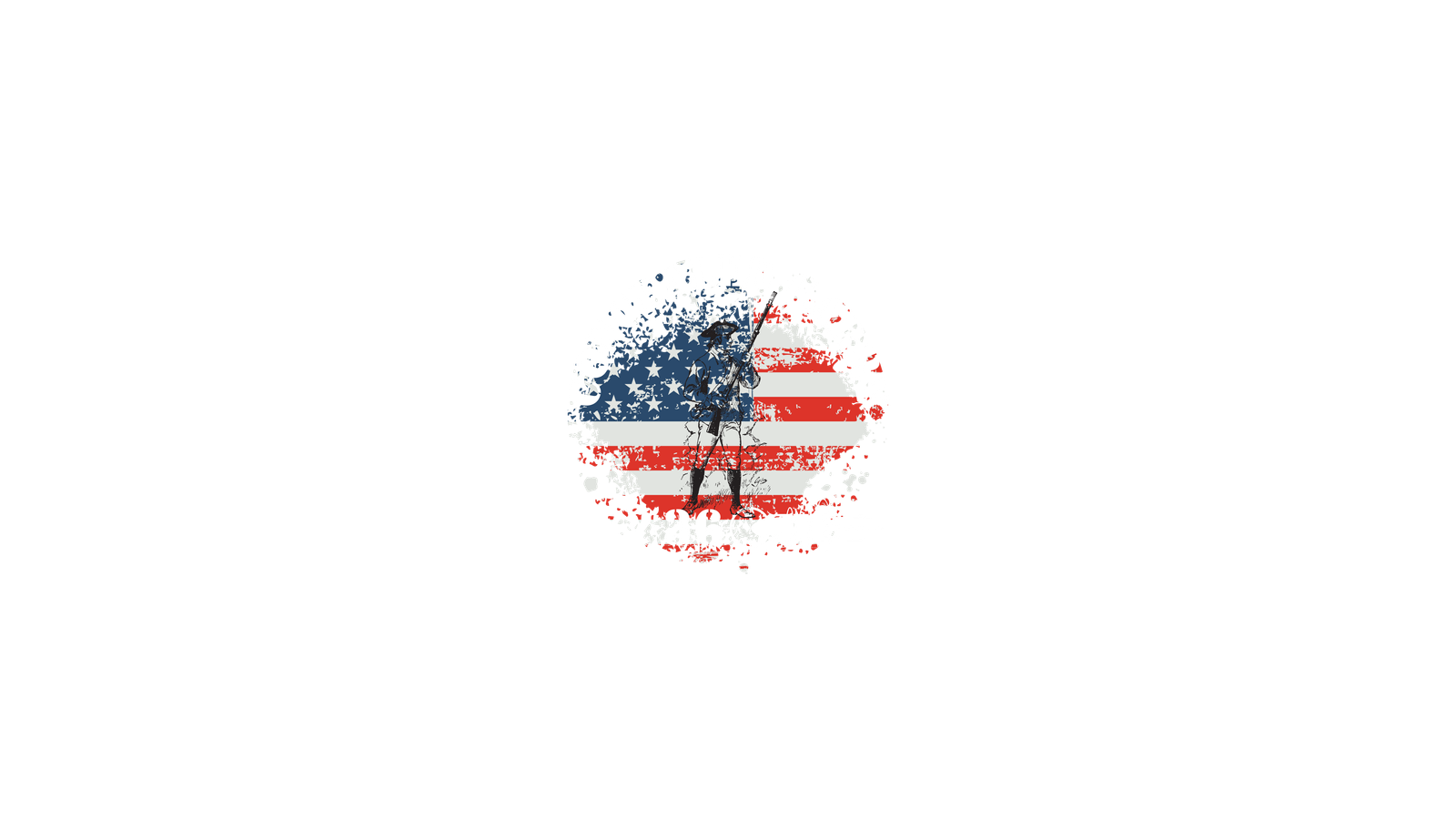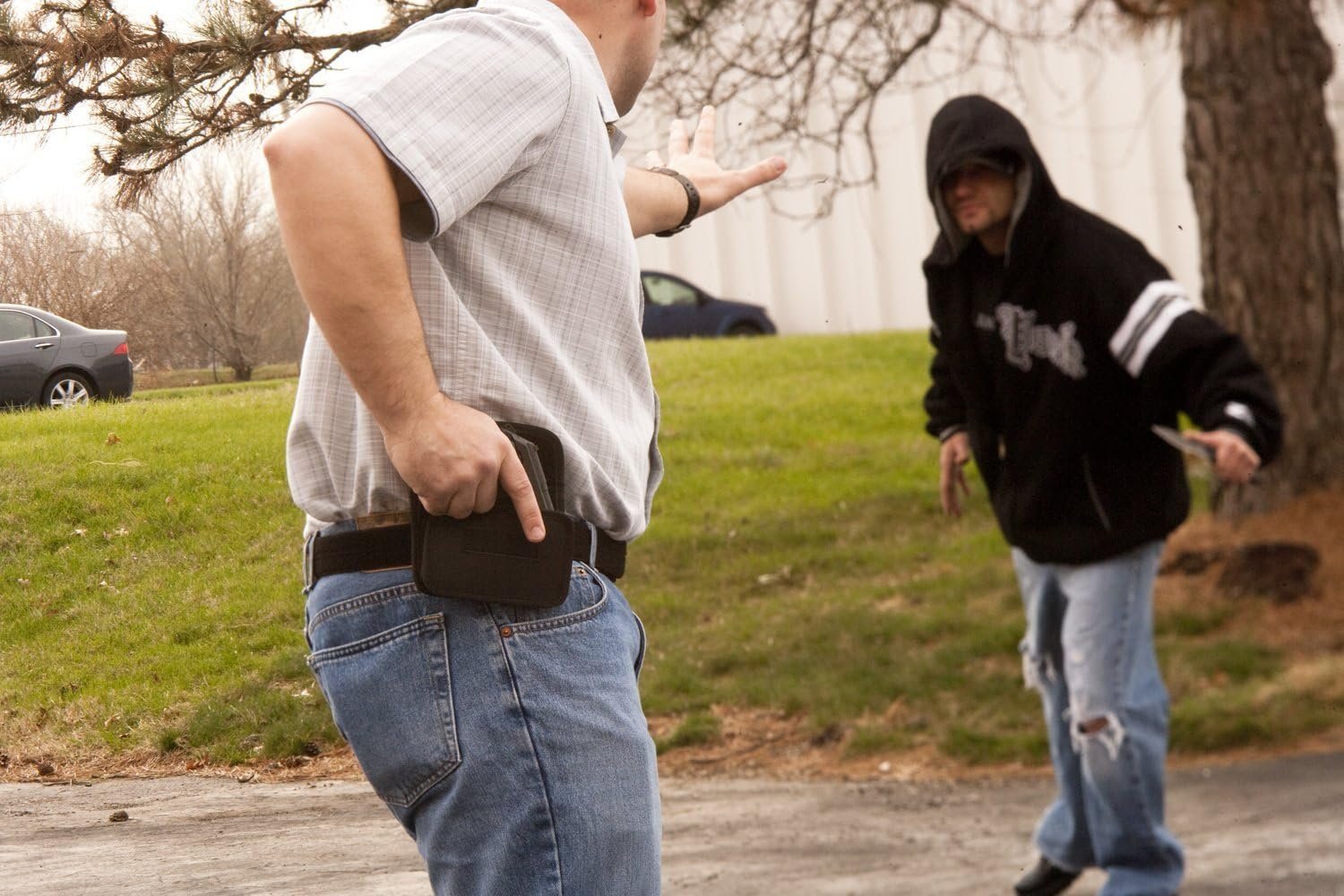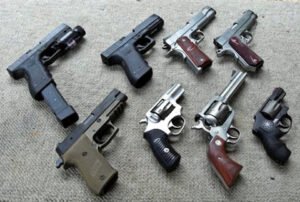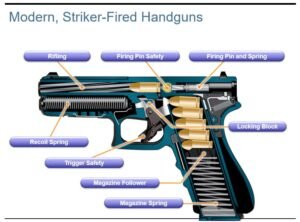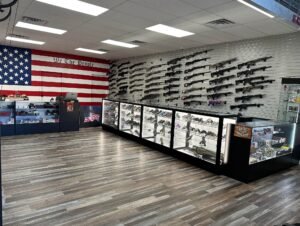Are you considering obtaining a concealed carry permit but overwhelmed by the wide range of options available when it comes to choosing your first firearm? Look no further, as this article will guide you through the process of selecting the perfect concealed carry gun for your specific needs and preferences. Beyond simply focusing on popular brands, we will explore important factors such as firearm size, calibers, and design features that will ensure both comfort and effectiveness while carrying your concealed weapon. Join us as we navigate the vast world of concealed carry guns and help you make an informed decision that will keep you safe and confident wherever you go.
Understanding Your Needs
Evaluate your reason for concealed carry
Before diving into the world of concealed carry, it’s important to evaluate why you want to carry a firearm in the first place. Are you seeking personal protection, or do you have specific concerns about your safety? Understanding your underlying reasons will help guide you in making the right choices throughout the process.
Assess your lifestyle and daily routines
Your lifestyle and daily routines play a crucial role in determining the type of concealed carry gun that will suit you best. Are you always on the go with an active lifestyle, or do you spend most of your days in an office environment? Consider factors such as clothing options, the likelihood of encounters in different settings, and the level of discretion you desire.
Consider your physical abilities and limitations
When it comes to concealed carry, it’s essential to consider your physical abilities and limitations. Factors such as hand strength, dexterity, and overall physical fitness can impact your ability to handle and operate different firearms effectively. Be honest with yourself about what you can comfortably handle to ensure both safety and confidence in your choice.
Research and Education
Study firearm laws and regulations
Before venturing into concealed carry, it’s crucial to familiarize yourself with the laws and regulations surrounding firearms in your jurisdiction. Each state and country has its own set of rules and requirements, and staying well-informed will ensure you remain compliant and responsible.
Get familiar with different types of guns
To make an informed decision, it’s important to understand the different types of guns available in the market. From compact pistols to revolvers and everything in between, each firearm has its own unique features and characteristics. By familiarizing yourself with the options, you’ll be better equipped to choose the one that suits your needs and preferences.
Learn about various calibers and ammunition
Ammunition plays a vital role in the performance of a firearm. Take the time to educate yourself about different calibers and understand their capabilities. Consider factors such as recoil, stopping power, and availability of ammunition for the caliber you choose. This knowledge will help you make an informed decision when selecting your concealed carry gun.
Ergonomics and Comfort
Handle and test firearms in person
One of the most important steps in choosing a concealed carry gun is handling and testing different firearms in person. Visit local gun shops or shooting ranges that allow you to try out various models. Pay attention to how the gun feels in your hand, whether the controls are easy to reach and operate, and how natural the grip and trigger pull are for you.
Ensure a proper fit and grip
Having a proper fit and grip is crucial for both comfort and safety. Ensure the size of the firearm feels comfortable in your hand, and that your fingers can reach all the necessary controls without straining. A proper grip helps with accuracy and recoil management, so it’s essential to find a gun that feels natural and secure when held.
Consider the weight, size, and recoil
The weight, size, and recoil of a concealed carry gun are important factors to consider. A firearm that is too heavy might be cumbersome to carry for long periods, while one that is too light might be more difficult to control during rapid fire. Additionally, the size and recoil can impact your ability to handle and shoot the gun accurately. Strike a balance that works best for you and your needs.
Ease of Concealment
Choose a size suitable for concealed carry
When it comes to concealed carry, size matters. Consider the size and dimensions of the firearm you plan to carry. A compact or subcompact model is typically easier to conceal and less likely to print through your clothing. However, larger guns may offer increased capacity and ease of shooting. Find a size that balances your concealment needs with your shooting preferences.
Consider the firearm’s printing potential
Printing refers to the outline of a concealed firearm being visible through clothing, potentially revealing its presence. When selecting a concealed carry gun, evaluate its printing potential. Guns with a lower profile and smooth lines are generally easier to hide. Additionally, choosing the right clothing and holster combination can significantly reduce the risk of printing.
Evaluate different holster options
The right holster can make all the difference in how comfortably and securely you can carry your concealed firearm. Consider different holster options, such as inside-the-waistband (IWB), outside-the-waistband (OWB), or appendix carry. Each has its own advantages and disadvantages, so choose the one that offers the best combination of comfort, accessibility, and concealment for you.
Reliability and Durability
Research the reputation of manufacturers
Reliability and durability are essential qualities in a concealed carry gun. Research the reputation of different firearm manufacturers to ensure you invest in a reliable and well-built firearm. Look for companies with a proven track record of quality, customer support, and long-lasting products.
Read customer reviews and feedback
Customer reviews and feedback can provide valuable insights into the reliability and durability of a firearm. Take the time to read reviews from other concealed carriers who have experience with the brands and models you’re considering. Their firsthand experiences can give you a better understanding of how certain firearms perform over time.
Consider the firearm’s maintenance requirements
Regular maintenance is necessary to keep your concealed carry gun in optimal condition. Consider the maintenance requirements of different firearms and if you are willing and able to fulfill them. This includes cleaning, lubricating, and potentially replacing parts as needed. Choose a firearm that aligns with your maintenance capabilities and preferences.
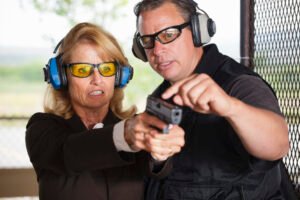
Training and Practice
Seek professional firearms training
Proper training is crucial for anyone carrying a concealed firearm. Seek out professional firearms training courses from reputable instructors. These courses will teach you proper gun handling, shooting techniques, situational awareness, and legal considerations. Through training, you’ll gain the confidence and knowledge necessary to responsibly carry a concealed firearm.
Practice regularly at a shooting range
Owning a gun is not enough; you must consistently practice your shooting skills. Regular range sessions allow you to build proficiency, accuracy, and muscle memory. Choose a shooting range that accommodates concealed carry and make it a routine to practice your skills. The more you practice, the more comfortable and proficient you will become with your firearm.
Consider the availability of replacement parts and accessories
Firearms, like any mechanical devices, may require maintenance or repair over time. When choosing a concealed carry gun, consider the availability of replacement parts and accessories. Opt for popular models that have a wide range of aftermarket support, ensuring you can find what you need when the time comes.
Safety Features and Mechanisms
Check for integrated safety mechanisms
Safety should always be a top priority when choosing a concealed carry gun. Look for firearms with integrated safety mechanisms, such as manual safeties or trigger safeties, that suit your comfort level and preferences. These extra precautions can help prevent accidental discharges and ensure safe handling of your firearm.
Understand the gun’s trigger action
The trigger action of a firearm can greatly affect your shooting experience. Different guns feature various trigger types, such as single action, double action, or a combination of both. Take the time to understand the trigger action of the firearms you’re considering and choose the one that offers a balance of safety, comfort, and responsiveness.
Consider additional safety accessories
In addition to integrated safety mechanisms, there are various safety accessories available that can enhance the security and peace of mind when carrying a concealed firearm. Consider options such as trigger guards, holsters with retention systems, or firearm-mounted lights with lasers that provide additional visibility and control.
Capacity and Ammunition
Evaluate the firearm’s magazine capacity
The magazine capacity of a concealed carry gun is an important factor to consider. Decide on the number of rounds you feel comfortable carrying and the potential scenarios you may encounter. Smaller firearms typically have lower magazine capacities, while larger ones can offer more rounds. Strike a balance between capacity and ease of concealment.
Consider the availability of compatible ammo
The availability of compatible ammunition is crucial for any concealed carry gun. Ensure that the caliber you choose has readily available ammunition in your area. Additionally, consider factors such as cost, compatibility with your firearm, and effectiveness for self-defense. It’s important to have access to reliable ammunition that meets your needs.
Determine the intended use (self-defense or range)
Think about the intended use of your concealed carry gun. Is it primarily for self-defense scenarios or do you also plan to use it for recreational shooting at the range? This will influence the type of firearm and ammunition you should choose. While some firearms excel in both areas, others are specifically designed for one purpose or the other.
Budget and Affordability
Set a realistic budget
When it comes to purchasing a concealed carry gun, it’s essential to set a realistic budget. Determine the maximum amount you are willing to spend and stick to it. Take into account the cost of the firearm itself, as well as necessary accessories such as holsters, magazines, and ammunition. Setting a budget will help narrow down your options and prevent overspending.
Research the cost of firearms and accessories
Conduct thorough research on the cost of firearms and accessories that align with your needs and preferences. Compare prices from different retailers and consider both new and used options. Keep in mind that quality, reliability, and reputation are just as important as price when making your final decision.
Consider the long-term expenses (ammo, maintenance)
Remember that owning a concealed carry gun involves more than just the initial purchase. Consider the long-term expenses such as ammunition, maintenance, and potential training or range fees. Factor in these costs when setting your budget to ensure that you can sustain responsible ownership over time.
Seeking Professional Advice
Consult with experienced concealed carriers
Seeking advice from experienced concealed carriers is invaluable. They can share their knowledge, insights, and experiences to guide you in choosing the right concealed carry gun. Reach out to trusted friends or join online communities and forums dedicated to concealed carry to connect with knowledgeable individuals who can offer guidance.
Visit local gun shops and shooting ranges
Local gun shops and shooting ranges are excellent resources for information and advice. Visit these establishments and speak with knowledgeable staff who can answer your questions, provide demonstrations, and offer recommendations based on their expertise. Take advantage of their experience to help refine your decision-making process.
Seek guidance from law enforcement professionals
Law enforcement professionals have extensive experience with firearms and can provide valuable insights into the world of concealed carry. Reach out to local law enforcement agencies or attend community events involving law enforcement to seek guidance and advice. They can offer perspectives on best practices, legal considerations, and other important factors to consider.
